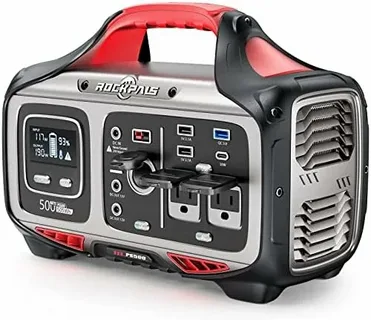RV trips offer the freedom to explore the open road and immerse oneself in diverse landscapes, but ensuring a reliable power supply is crucial for a comfortable journey. A portable power station serves as the backbone of your RV’s electrical system, powering everything from essential appliances to entertainment devices. However, with a plethora of options available in the market, choosing the right one can be a daunting task. This article will guide you through the key factors to consider, helping you make an informed decision and select a portable power station that perfectly suits your RV trip needs.
How to Choose the Perfect Portable Power Station for Your RV Trips
Determine Your Power Requirements
The first step in choosing the right portable power station is to assess your power needs. Make a comprehensive list of all the devices you plan to use during your RV trip. This may include refrigerators, microwaves, coffee makers, laptops, smartphones, TVs, and LED lights. Each device has a specific power consumption rate, measured in watts (W). For example, a small RV refrigerator might consume around 50 – 100W, while a microwave can draw up to 1000W or more when in use.
Calculate the total wattage of all the devices you intend to power simultaneously. Additionally, consider how long you’ll need to run these devices each day. This information will help you determine the minimum capacity your portable power station should have. It’s advisable to choose a power station with a slightly higher capacity than your calculated needs to account for unexpected usage or longer – than – planned trips.
Consider Capacity and Power Output
The capacity of a portable power station is measured in watt – hours (Wh). A higher Wh rating indicates that the power station can store more energy and, consequently, power your devices for a longer period. For shorter RV trips with minimal power requirements, a power station with a capacity of 200 – 500Wh might suffice. However, for extended trips or when powering multiple high – wattage appliances, you’ll need a power station with 1000Wh or more.
In addition to capacity, pay attention to the power output of the portable power station. It should be able to handle the total wattage of your devices without overloading. Look for power stations with sufficient AC, DC, and USB ports to accommodate all your charging needs. Some models also offer fast – charging capabilities, which can significantly reduce the time it takes to charge your devices.
Evaluate Charging Options
When on the road, having multiple charging options for your portable power station is essential. Most power stations can be charged via a standard wall outlet, which is convenient when you’re at an RV park with electrical hookups. However, for off – grid adventures, consider power stations that support alternative charging methods.
Solar charging is a popular and eco – friendly option for RV travelers. Look for power stations that are compatible with solar panels and have built – in charge controllers to optimize the charging process. Some power stations can also be charged using your RV’s cigarette lighter socket or through a DC – to – DC charging system while driving. A combination of these charging options ensures that you can keep your power station topped up, regardless of your location.
Size and Weight Matter
Space is often limited in an RV, so the size and weight of the portable power station are important considerations. Opt for a compact and lightweight model that can be easily stored and transported within your RV. However, don’t compromise on capacity and features for the sake of size. Look for a balance between portability and functionality to meet your power needs without taking up too much valuable space.
Budget and Brand Reputation
Set a realistic budget for your portable power station purchase. While there are affordable options available, investing in a higher – quality model from a reputable brand can offer better performance, durability, and safety features. Research different brands and read customer reviews to gauge the reliability and quality of their products. A well – known brand is more likely to provide excellent customer support and after – sales service, giving you peace of mind during your RV trips.
Conclusion
Choosing the right portable power station for your RV trips requires careful consideration of your power requirements, capacity, charging options, size, weight, budget, and brand reputation. By taking the time to assess these factors and doing thorough research, you can find a power station that not only meets your needs but also enhances your overall RV travel experience. With a reliable portable power station on board, you can enjoy the comforts of home on the road, stay connected, and make the most of your adventures, no matter where the journey takes you.

